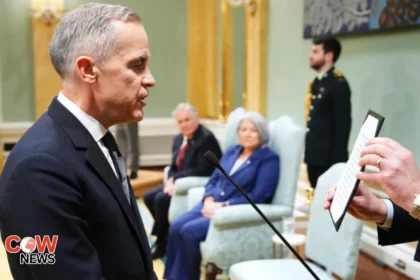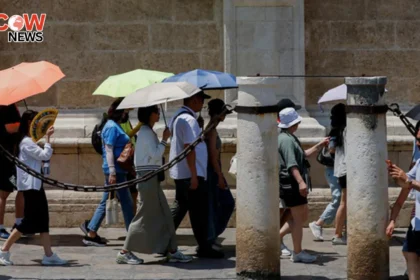In a strong response to the U.S. travel ban on citizens from Chad and other countries, the African nation of Chad has announced it will not issue visas to American citizens. This move comes after U.S. President Donald Trump imposed a travel restriction on citizens from several nations, including Chad, as part of an effort to protect U.S. citizens and interests from terrorism.
The U.S. ban, announced earlier, affects nationals from countries such as Afghanistan, Myanmar, Chad, the Democratic Republic of Congo, Equatorial Guinea, Eritrea, Haiti, Iran, Libya, Somalia, Sudan, and Yemen. These nations were identified due to concerns over insufficient vetting processes or national security threats.
In retaliation, Chad’s President, Idriss Déby, issued an official decree halting the issuance of visas to American citizens. In a Facebook post, President Déby criticized the U.S. decision, stating, “Chad does not have planes or billions of dollars to offer, but Chad has dignity and self-respect.” His remarks underline the sense of pride and sovereignty that Chad seeks to assert in the face of international pressure from a more powerful nation like the U.S.
The U.S. government’s travel ban is part of a broader strategy aimed at preventing individuals from countries with high levels of terrorism or insufficient security protocols from entering the United States. Trump’s administration has framed the measure as a security precaution to protect U.S. citizens from potential threats posed by foreign nationals.
Chad, a country in central Africa, has faced its own set of challenges in terms of security, but the country’s government has consistently cooperated with international counterterrorism efforts, particularly in the fight against Islamist groups operating in the Sahel region. Despite this, the U.S. decision to include Chad in its list of banned countries came as a surprise to many, especially given the country’s role as a partner in the global war on terror.
The response from Chad is part of a broader trend in which nations affected by U.S. travel bans are speaking out. In a related development, the government of the Democratic Republic of the Congo (DRC) also voiced its dissatisfaction with the U.S. decision to include it in the travel ban. A spokesperson for the DRC government clarified that the country is not a haven for terrorists and argued that the inclusion of Congo on the list was a misunderstanding.
The Congolese government’s comments highlighted concerns about the lack of communication and understanding between the U.S. and the countries affected by these policies. With growing tensions, both Chad and Congo are calling for clearer explanations and dialogue regarding their inclusion in the travel restrictions.
While the U.S. government has defended its actions as necessary for national security, these responses from African nations underscore the diplomatic rifts that can arise from such unilateral policies. The move by Chad, in particular, signals a strong desire for national dignity and respect in international relations, especially from smaller nations facing the weight of global decisions made by major powers.
The ongoing dispute has the potential to impact diplomatic relations between the U.S. and these nations, particularly in terms of trade, security cooperation, and bilateral ties. As these countries respond, the situation could evolve into a broader international debate about the balance between security concerns and national sovereignty in a rapidly changing global landscape.







